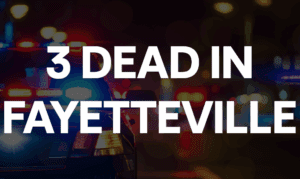Fayetteville Police Chief Steve Heaton at the City Council retreat Friday said there is a community perception that overall crime has been increasing in Fayetteville and that the Fayette Pavilion continues to be a major source of criminal activity.
But the crime numbers tell a different tale, Heaton said. And in terms of serious criminal offenses Fayetteville is in better shape than comparable Georgia cities.
Dividing overall crime into the customary rankings of Part 1, or more serious crimes, and Part 2 crimes, Heaton said Part 1 crimes at the Pavilion have been experiencing an overall decline for the past six years.
And, with the exception of larcenies, the predominate offense at the shopping area, the number of crimes at the Pavilion in 2009 was on par with the lowest rates that occurred in 2006 and 2007. The rates from 2003-2005 were significantly higher.
Specific to Part 1 crimes at the Pavilion, Heaton said those serious crimes accounted to 30.41 percent of all Part 1 crimes citywide in 2009.
According to data provided by the police department, the 2009 total for Part 1 crimes at the Pavilion compared to those citywide was the second lowest during the seven-year period of 2003-2009.
In 2008 the percentage was 36.52 compared to 39.24 in 2007, 30.30 in 2006, 47.57 in 2005, 43.91 in 2004 and 52.08 percent in 2003.
Addressing crime citywide, Heaton provided a comparison of violent crimes showing where Fayetteville stood in 2009 compared to cities across the state with populations of 10,000-20,000 for Part 1 crimes such as murder, robbery, aggravated assault and rape.
That data showed that of the 34 cities listed Fayetteville was fifth from the lowest in the number of those crimes.
Fayetteville had 47 violent crimes compared to 300 in Union City, 198 in Americus, 135 in Moultrie, 115 in Chamblee, 101 in St. Marys, 92 in Cartersville and 54 in Fairburn. Only Suwanee, Pooler, Loganville and Milton had fewer violent crimes in comparably sized cities.
Reviewing Part 1 offenses for the past 16 years, Heaton there were a total of 444 serious crimes in 2009 compared to 564 in 2008 and 554 in 2007. Only 1994 saw fewer Part 1 crimes with 454. The city for the past 16 years averaged just under 600 Part 1 offenses each year. And except for 2008 the city has shown a steady decrease in Part 1 crimes each year since 2003.
As for Part 2 crimes such as DUI, drug violations, fraud, forgery and weapons violation, Heaton said citywide there were 622 of these crimes in 2009. Tracked since 1995, there was a low of 557 in 2008 and a high of 809 in 1998.
Heaton said 10 of the past 15 years saw 600 or more Part 2 crimes in the city, adding that though the population has increased the numbers have remained relatively flat due to proactive enforcement and arrests.
In addressing accomplishments during 2009, Heaton said the department established a Boy Scout Explorer Post, implemented a traffic management team, updated the in-car camera system, purchased a third drug dog and conducted associated officer training, held the third Citizens’ Police Academy, completed the sixth Junior Police Academy, purchased a child identification system and re-established the bike patrol program.
Heaton noted numerous department personnel who received state or federal law enforcement training during the past year.
Also in a report on the city’s involvement with the Sheriff’s Tactical Narcotics Team (TNT), Heaton said the department received $329,938 in 2009 from its participation with the unit. Of that amount a total of $241,329 was used to purchase items such as vehicles and equipment, a third dog for the K-9 unit, officer training and uniforms and equipment for the Honor Guard.
Heaton said that in 2009 TNT participated in the seizures $2.706 million in currency, 35 guns, 1,934 pounds of marijuana, 303 kilograms of cocaine, 5 pounds of methamphetamine and other drugs.












Leave a Comment
You must be logged in to post a comment.